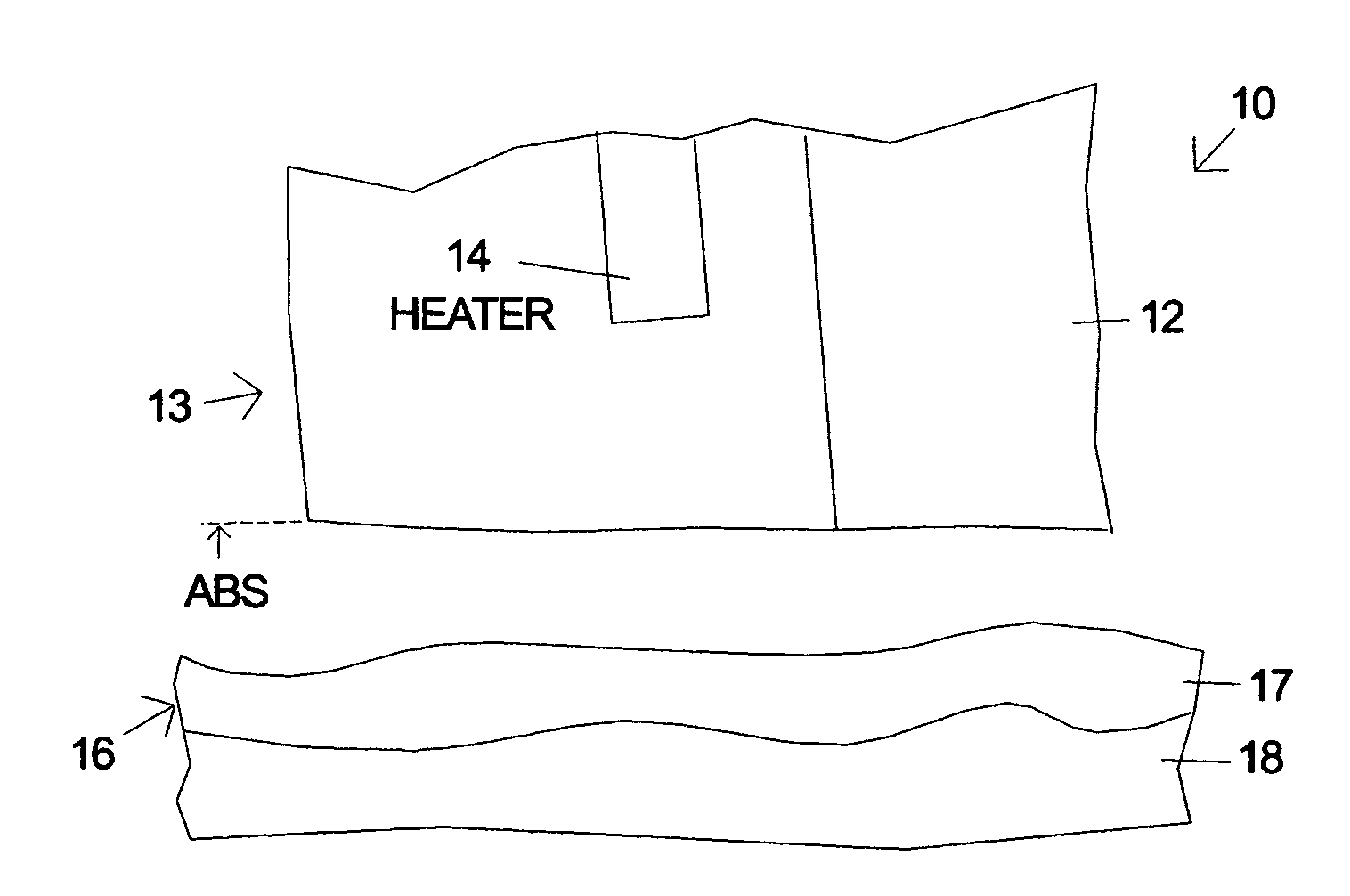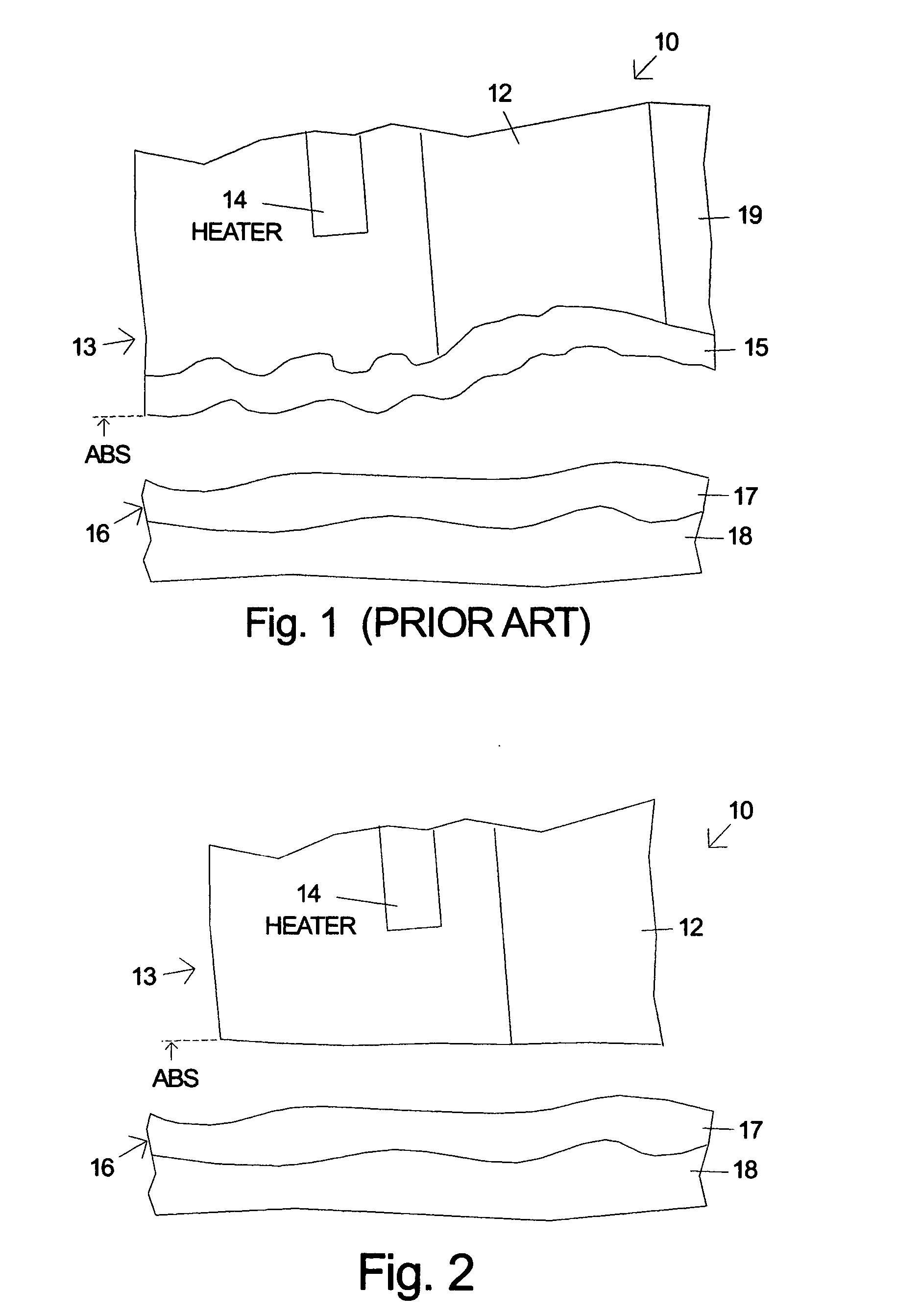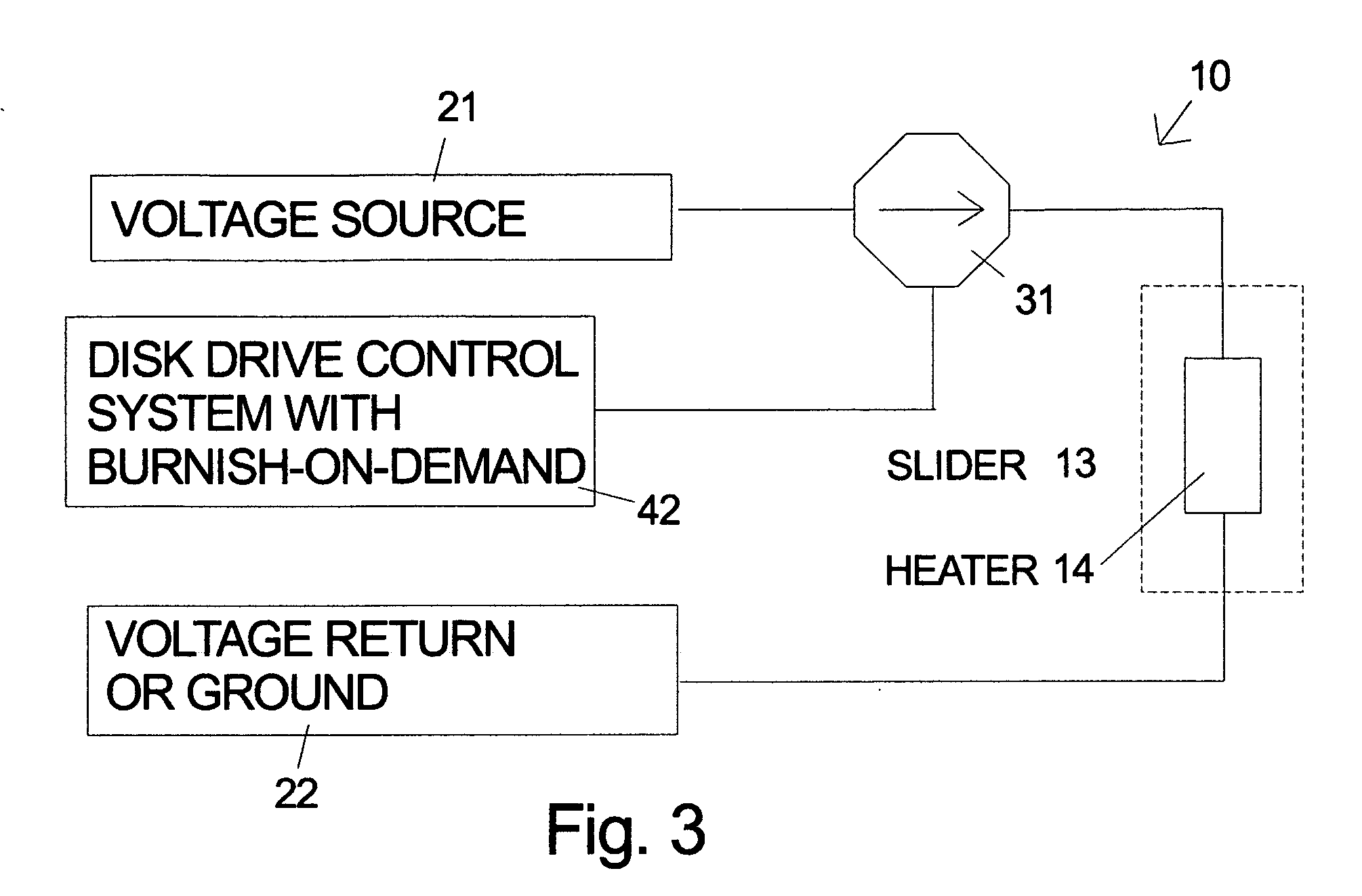Disk drive slider design for thermal fly-height control and burnishing-on-demand
a slider and slider technology, applied in the field of sliders, can solve the problems of reducing the heater power needed for controlling the head fly-height or burning, and achieve the effects of reducing the risk of corrosion, avoiding corroding, and selecting the time of burning
- Summary
- Abstract
- Description
- Claims
- Application Information
AI Technical Summary
Benefits of technology
Problems solved by technology
Method used
Image
Examples
embodiment 1
[0052] Alternative embodiments of the invention will now be discussed. Each of the designs has pico slider dimensions and a measured fly height of about 8 nm. Embodiments 1 and 2 have a slider pitch of 160 micro-radians. In embodiment 1, unlike the conventional design, the trailing lift pad is divided into a leading lift pad and a smaller trailing thermal protrusion pad which is approximately 28 um×30 um. The deep etch forming the leading edge 61A of the thermal protrusion pad 61 has a steep enough wall angle so that very little ABS lift is generated by the thermal protrusion pad. The trailing edge of the lift pad 63 is approximately 30 um from the N58 / alumina interface of the deposited thin films 60 forming the heads. Since very little protrusion occurs 30 um deep into the N58 from the heater, the lift pad 63 will not protrude significantly when the heater is on and the protrusion will only affect the thermal protrusion pad 61. Since little lift is generated by the thermal protrusi...
embodiment 2
[0055] The protrusion is modeled with an elliptical-shape of dimensions 50 nm×80 nm centered on the write gap of the head and the change in fly-height at this point is determined as a function of protrusion height. FIG. 18 plots the protrusion height (x-axis) and the protrusion minus the change in the fly-height (y-axis) for a prior art head and the two embodiments of the invention. The graph in FIG. 17 shows the effectiveness of the deep etch between the lift pad and thermal protrusion pad for reducing fly-height compensation due to protrusion. While the conventional prior art design shows 27% fly-height compensation, embodiment 2 shows only about 2% compensation. By reducing the fly-height compensation, the steep wall angle at the leading edge of the thermal protrusion pad increases the effective stroke of the heater at a given power and reduces the power required by the heater to burnish away the thermal protrusion pad overcoat from a distribution of sliders.
[0056] The invention ...
PUM
| Property | Measurement | Unit |
|---|---|---|
| Angle | aaaaa | aaaaa |
| Angle | aaaaa | aaaaa |
| Length | aaaaa | aaaaa |
Abstract
Description
Claims
Application Information
 Login to View More
Login to View More - R&D
- Intellectual Property
- Life Sciences
- Materials
- Tech Scout
- Unparalleled Data Quality
- Higher Quality Content
- 60% Fewer Hallucinations
Browse by: Latest US Patents, China's latest patents, Technical Efficacy Thesaurus, Application Domain, Technology Topic, Popular Technical Reports.
© 2025 PatSnap. All rights reserved.Legal|Privacy policy|Modern Slavery Act Transparency Statement|Sitemap|About US| Contact US: help@patsnap.com



